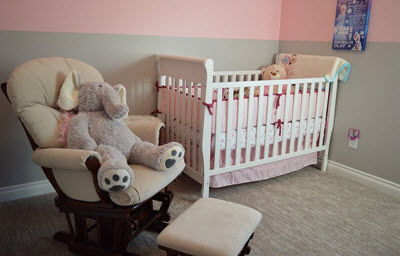Contents
Let’s face it most pregnancies can be a stressful time, especially if they are unplanned, even women who do plan their pregnancies are likely to feel anxiety about becoming a new mother.
There is some truth to the old saying; “there is no perfect time to have a baby”, there are undoubtedly, times that are more right than others.
Babies bring on an entire new host of challenges. Have no fear though, your baby making list, and fears of being a new mother are covered all right here: in this easy comprehensive guide for you, and your partner.
Are you and your partner on the same page?
Making sure both parents are on board is essential. Ultimately, the baby will pay the price for the pregnancy if one partner isn’t fully committed. Communication with your significant other is essential when bringing a baby into your life. Couples should make sure there are no assumptions about their expectations.
If you’ve been asking yourself whether it’s time to have a baby, this checklist of could help. From your health, financial situation, or your social life; here are some things you need to consider before you get pregnant.
Health considerations
So how do you prepare for the life change?
Time to see your doctor
 Get a complete physical. Discuss with your doctor chronic medical conditions such as: diabetes, Crohn’s disease, genital herpes, or other medical conditions that may impact pregnancy.
Get a complete physical. Discuss with your doctor chronic medical conditions such as: diabetes, Crohn’s disease, genital herpes, or other medical conditions that may impact pregnancy.
Ask for a blood test to determine your immunity to childhood diseases such as: chickenpox, or rubella, and get vaccinated if necessary. When visiting your doctor, ask for a prescription for prenatal vitamins; start taking them: three to six months before you plan to conceive, if possible. You and your doctor should also review medications you’re taking, and ask whether they should be altered or discontinued.
If you are a smoker, or use drugs and alcohol, it’s time to quit these habits. Smoking, and illicit drug use, or alcohol addiction is very dangerous for your baby. Be as open and honest with your obstetrician about any addictions, or bad life habits, and make a comprehensive plan to become healthier.
Are you eating a healthy diet?
Keep a journal of what you eat for one week.
Drink lots of liquids; at least eight glasses of water a day, juice, and, or milk.
Cut back on caffeinated beverages; soda and coffee in particular.
Follow daily guidelines for good nutrition: 3 servings of calcium-rich foods; 7 servings of fruits and vegetables; 2 servings of lean, high-protein foods like beef, fish, or white-meat poultry; and 6 servings of grains, preferably whole-grain breads, cereals, or brown rice. Cut back on fats and sweets.
Workout Plan
If you currently have an exercise program check with your doctor to make sure it’s safe to continue during pregnancy. If you don’t currently exercise, ask your doctor whether it’s safe to start. Low-impact activities such as; swimming, or walking are excellent workouts for you, and the baby. It is important to stay physically active, and to get at least thirty minutes of exercise three to four times a week.
Sleep, are you getting enough?
Get some sleep. All-nighters can wreak havoc on your health, and possibly, your baby. Minimize stress.
Mental Health 
Childhood traumas, like losing a parent or being emotionally or physically abused, can profoundly impact your ability to parent. Unpack your emotional baggage now, preferably with the help of a therapist, clergyman, or other professional; to avoid passing it on to your kids.
Possibly ask your doctor about any mental health concerns; especially if you have depression, or if it rums it your family. Family medical history is something you should most absolutely discuss with your family doctor.
Financial Tips
Look into a family planning accountant, or a financial planner to discuss: savings plans, both for baby’s college, and for other big-ticket items like babysitters, day care, preschools, and unfunded maternity, or paternity leave.
What about Work?
Determine whether you need two incomes to get by, which is important, because as a new mother you could be out of work due to childbirth for up to six weeks; start planning now. The first year of pregnancy including the cost of childbirth is estimated to be over $50,000. If you plan to keep working, find out about your company’s maternity leave, and paid time off policies.
Do you have insurance?
You may need to change to an in-network doctor, or choose one local hospital over another due to insurance concerns. Find out if your insurance covers one hundred percent of prenatal care, and delivery. You may need to change to an in-network doctor, or choose one local hospital over another. If you don’t have insurance, get some now!
Start researching life insurance. You’ll both need coverage once you have a child.
Important Note
If you don’t have insurance, get some now. Depending on your location, individual HMO policies start at around two-hundred dollars a month, substantially less than the cost of medical care for a pregnancy from start to finish.
Be ready
Pack Your Bag. A few weeks before your due date, gather your supplies for the hospital, pack them up, and put the bag in an easy-to-spot place. Tape a note to the top listing any last-minute things you’ll need to throw in, like your toothbrush, and deodorant.
This article was last updated on: July 12, 2018
